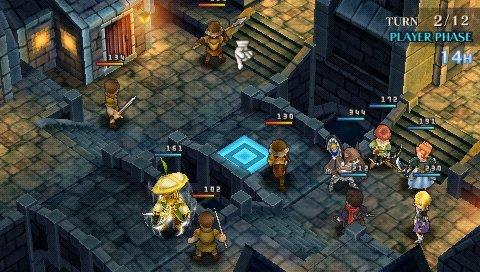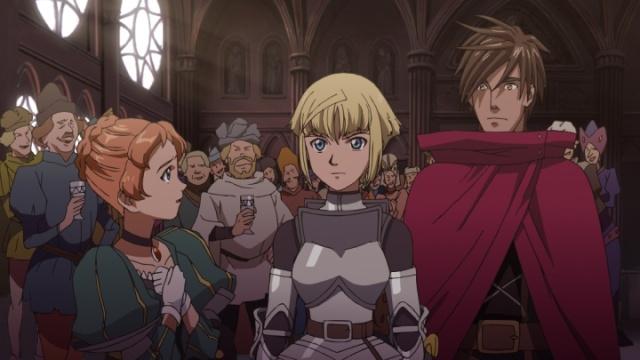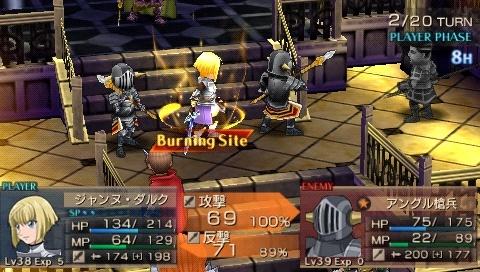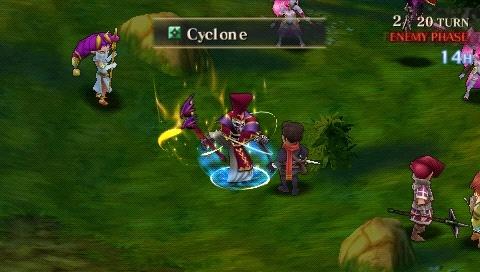
Divinity II: Ego Draconis Review
Divinity II has a lot going for it. The two precursors to this game, Divine Divinity and Beyond Divinity, were lauded for their sophisticated stories, deep gameplay, creative design, and length addictive gameplay. Does the game live up to the hype, or will it be lost among the many other great fantasy RPGs that have come out lately (Hint: yes to that second one)? Let's find out!
The story begins in the magical world of Rivellon, filled with large grasslands, deep forests, bubbling brooks, rocky terrain, frolicking wildlife, blah blah blah you get the point that this is a fantasy game. After one of the fabled Dragon Knights cowardly killed the chosen one from the first game, their order was almost completely exterminated by the newly formed order of the elite Dragon Slayers. You are a member of this group, and the goal of the game early on is to find one of the last of these traitors and bring them to justice.

Players will get a first taste of what Divinity II has to offer with its Create-A-Character feature. Unfortunately, it isn't a good first impression, and brings about its first real fault. The game offers very little in terms of customization for your character. You can select your gender, face, hair, and voice, with four choices for each of them. That. is. it. From a game that is nearly a decade newer than its predecessors, I was expecting a lot more from it.
You start off talking to a woman named Commander Rhode, who says that there isn't much time to waste. The Dragon Knight has been spotted, and they need to find her before she escapes. Rhode instructs you to talk with the different villagers around the nearby town in order to become a Dragon Slayer yourself.
After arrival and becoming a Dragon Slayer (and finding out that you now have glowing white eyes and can see dead people), I quickly discovered that the game doesn't force you onto one path. You can decide to become a warrior, a ranger, or a wizard, and can switch amongst any of them before youet off outside of a town without penalty.
This is also reflected in the skill tree, where you are free to level up any of the classes available in the game: Priest, Mage, Archer, Rogue and Dragon Slayer. There is even a short video that plays on the lower left of the screen to show you exactly what this skill looks like (which also may or may not leave you feeling a little spoiled from experiencing it this early in the game). Of course, this is merely a demonstration of the first two games that also had this available feature.
You are tasked to ask around town for information about where the traitor (who has become a dragon) is located. Apparently, this dragon has been terrorizing the countryside and scant few have noticed this event. The first person I talk to tells me exactly where the dragon is located (spoiler alert: in the valley). Great! Now to talk to my commander. Wait, no, apparently I did not extract enough information and need some sort of confirmation from several other individuals. So, on I go, asking each of these "key" characters what they saw. Rather than give me any real sort of real anecdote, however, I am basically just told time and time again that the dragon is in the valley.
Let me just say that the conversation trees can sometimes be downright ridiculous. Don't go into this expecting some really fluid dialogue to flow from your character's mouth, because all you'll get is simple one-answer replies. Don't expect decisions on morality or long-term effects while chatting it up with other characters, but you will experience instant results with whatever way you decide to take the conversation.
Unfortunately, most, if not all the NPCs aren't really developed enough for you to feel any sort of emotional attachment to any of them, so during my time playing Divinity II, it might have been my first time in an RPG of this style where I didn't care if I played the royally evil route, and no one but the characters you affected during this quest will think any different of you; the world stays the same (that isn't to say that other games take this concept way too drastically, as I don't expect someone from a town hundreds of miles away to know about that one time I threw a rock into old man Barnaby's window).

Another problem is the steep difficulty curve. Here I was attacking some low-level weaklings, when this creature 3-4 levels above my own comes rushing in to clobber me to death. Oh great! Here comes a feature that I thought only jRPGs enjoyed having me do - GRIND!
Yes, my friends - don't expect to just waltz into the main story quests without spending an hour or two leveling your character up to a respectable level. You'll either be hacking away at a bunch of low-level creatures or utilizing your best hit-and-run tactics to take out those foes that are just a few levels above your own. Even leveling up isn't enough, because despite being level 8 to another level 7 monster, I was still finding myself laid out on the pretty grass.
Fear not, for when confronted by an enemy that is a few levels above your own, do what any soldier in combat would do: get a big ass sword. After a trip to the local blacksmith, I proceeded to chop my way through hordes of cliché skeletons and gremlins. I tried to ignore the brainless combat system - you'll just be spamming the left mouse clicker while the silly hit detection appears to show you connecting from a mile away - but there comes a time when you cherish the RPGs that actually required you to think and strategize ahead, but when you have something this bland to offer, who cares?
Now, I have heard that game gets much easier after reaching level 12 for a lot of different reasons, including having access to your own a tower where you can create your own monsters and forge new weapons, armor, and potions. The problem with that is that you will receive this halfway through the 40-hour game, something that takes a "casual" hardcore gamer such as myself weeks to accomplish (which is why I didn't quite get to experience being a dragon for long). In particular, I found myself abusing the Quicksave feature until I left a hole in my keyboard.

The game throws so many confusing hooks into the mix. You will find food aplenty early on, but the problem is that you are not allowed to use another replenishing item until the previous one has gone through its course to heal you. I am left running around like a chicken with its head cut off as I wait for that simple apple I just ate to hopefully provide enough hit points to help me survive all of the arrows and spells being rained down upon my body.
The side quests can be rather hit or miss in this game. I won't say that having all of these ways to experience the world and level up at the same time isn't appreciated, but most of them were pretty nonsensical. But hey, this is an RPG, and that has become pretty synonymous with the genre. Another feature that is offered is the ability to read the minds of the different characters in the game. This includes achieving a discount from a merchant who is worried about the low demand for their products, or opening new side quests from a worried farm hand. Although this was billed during the game as one of the main abilities of a Dragon Slayer, I tended to think it was really out of place, and probably just thrown in at the last minute.
The saving grace in this game to a point is the voice acting and music. I found myself humming along to the majestic music at more than one occasion, even if some of the songs are more than forgettable and some are even really out of place - in a word, it is inconsistent. The voice acting was above par. The sound effects, however, did not have quite the impact as I first thought they would have, and could have used a little more work. My 5.1 home theater sound system never registered above a hum in this regard.
The aiming mechanic is one of the biggest messes in this game in terms of mechanics. You see, in order to open a door, climb a ladder, open a pot, or anything else that requires a selection, players will have to focus a reticule onto that object. This can sometimes be extremely awkward and very faulty when you are trying to hurriedly loot a creature's body to hopefully find some food to eat in the middle of the chaos.

If the goal of Divinity II was to try and compete with the big boys of the genre like Elder Scrolls (it even uses Gamebryo, the same engine that powers Oblivion and Fallout 3), don't start by taking everything that was fun with those titles and throwing it all out the window. Although I enjoyed flying around as a dragon and torching the place up, that is something anyone can enjoy.
It has been 6 long years since Beyond Divinity, but we are looking at the "Matrix Revolutions" of the series. Divinity II's pacing is horrible, the visuals are poor, the story very much forgettable, the gameplay mechanics downright dreadful, and the lack of any real sort of replayability - something you wouldn't actually expect from an RPG trying to be this epic in scope - makes this game a privileged member of your local game retailer's bargain bin. This is the kind of title you will only enjoy if you decide to turn your brain off for 40 hours whilst in the comfort of your chair. Do yourself a favor and pass this one up for much more fantastic games like Dragon Age or The Witcher. I just do not seeing this title becoming a true contender.